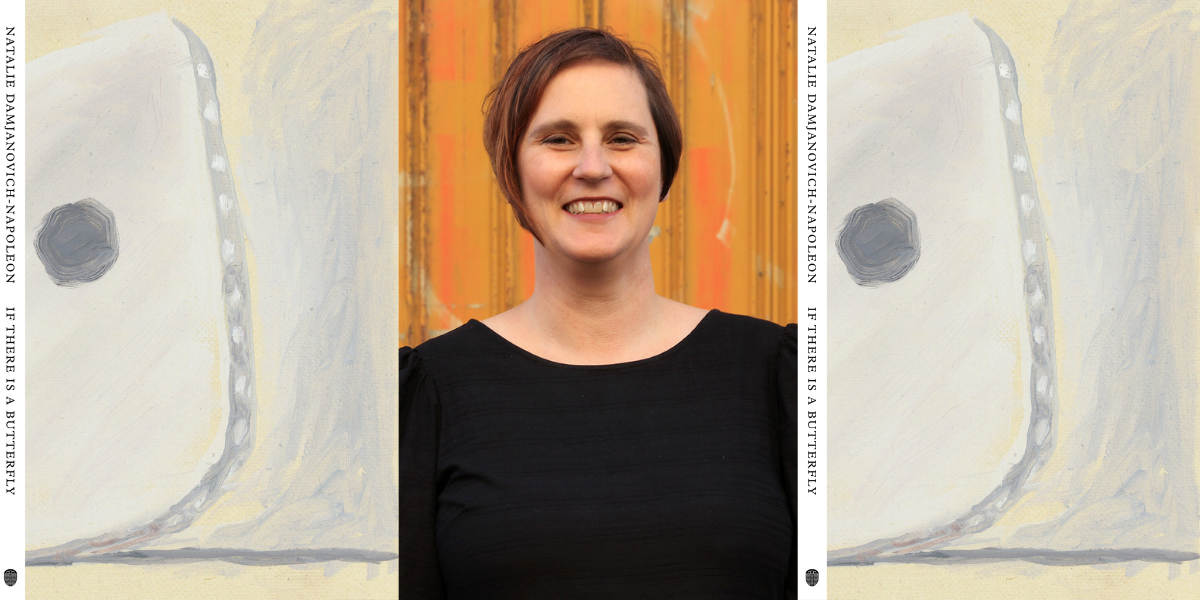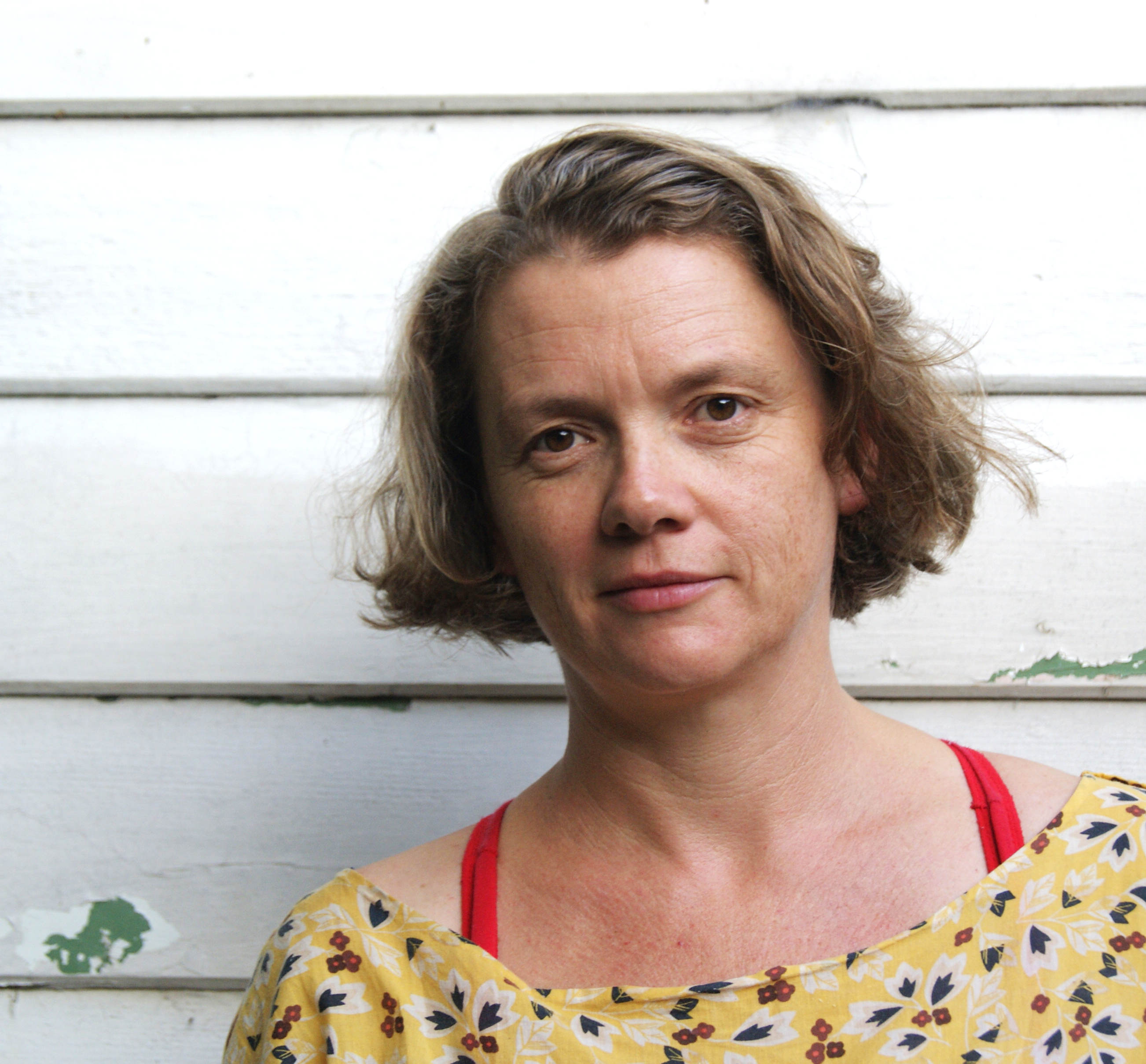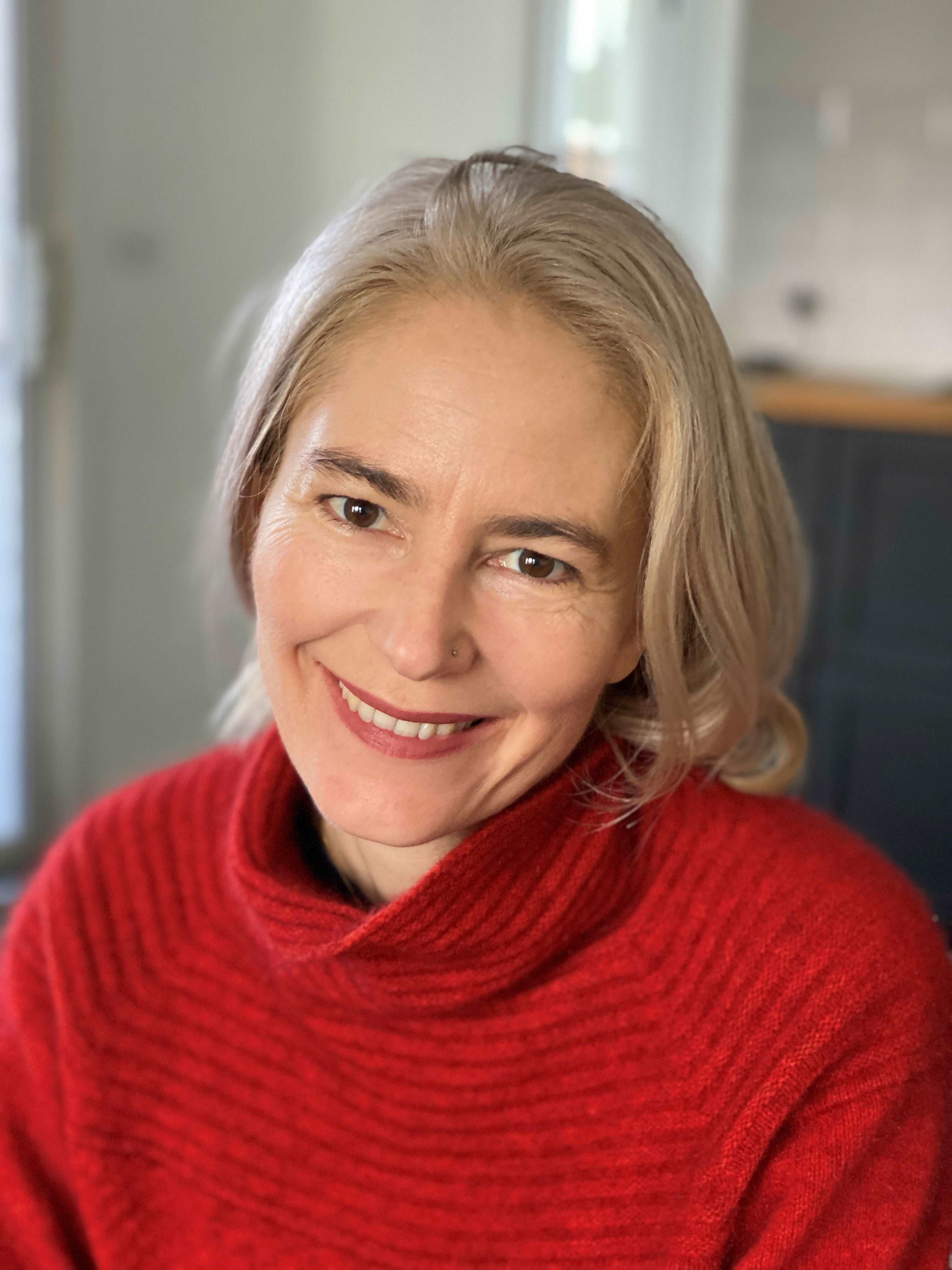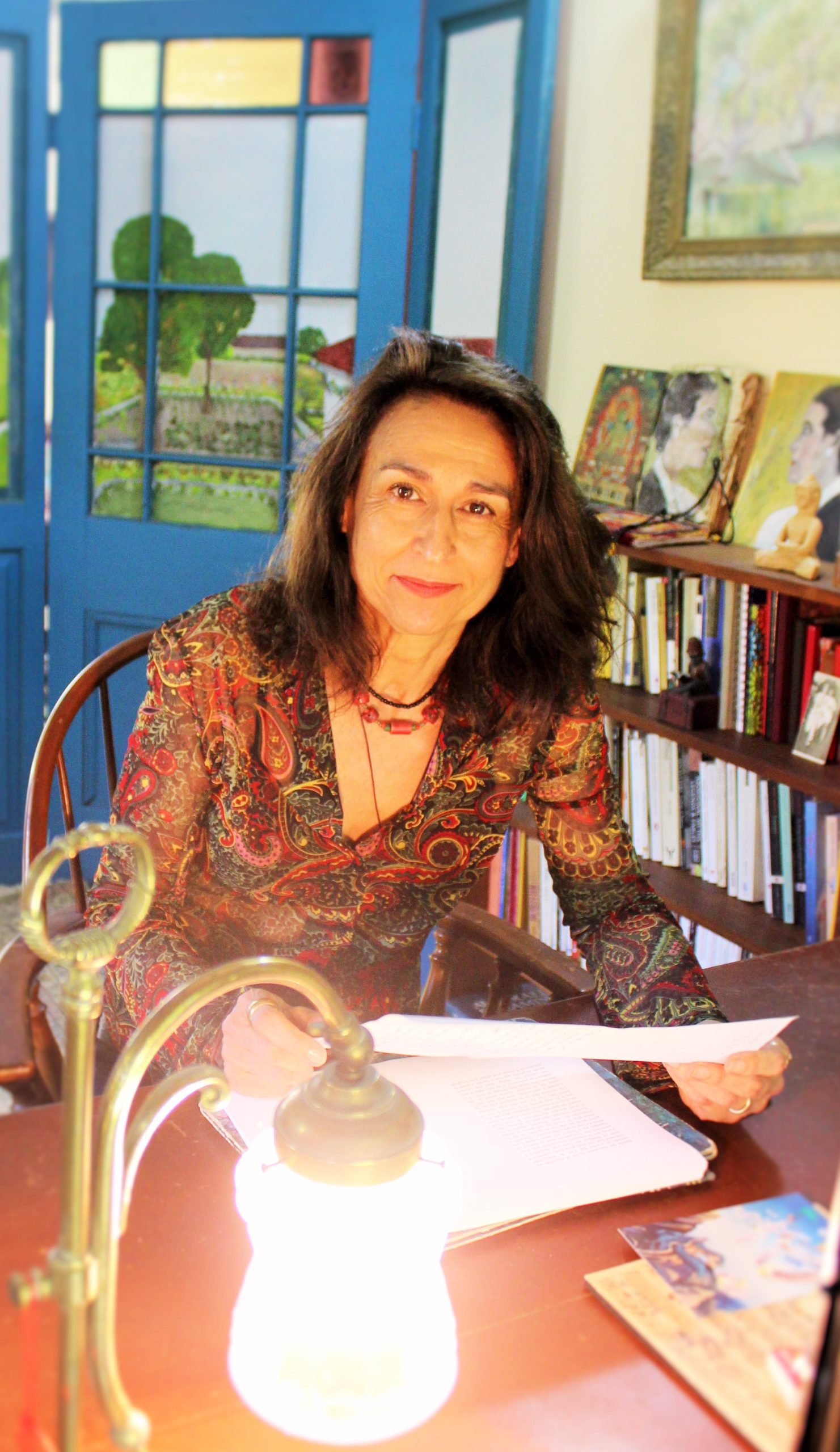1. How would you describe If There is a Butterfly That Drinks Tears?
In If There is a Butterfly That Drinks Tears, I write about motherhood with openness and tenderness, while also being critical of the way society puts pressure on women and mothers to be perfect. We are not perfect – we are human with all the flaws and complications of being human and living with bodies that can bear children. That’s why there are poems about reproductive choice, infant loss, miscarriage, infertility, and women who choose not to become mothers, too.
Just like the social pressures society puts on women these poems also reflect the societal pressure in which they were born. The poems were written against the background of becoming a mother as the Obama Presidency gave way to the rise of Trumpism and all the accompanying anxieties. The title poem ‘If There is a Butterfly That Drinks Tears’ was written as a response to my toddler son whacking a chrysalis off the siding of our house and effectively killing the butterfly inside. My heart broke in two when my son did this, yet I knew he didn’t consciously know what he was doing at the time. On the news that night there was a story about how Trump’s proposed wall was going to cut through a nature preserve where monarch butterflies overwinter, which if it went ahead would result in the deaths of millions of butterflies. The next day I sat at my writing desk and the poem poured out of me. I was pleasantly surprised when it won the KSP Poetry Prize several years later.
2. What drew you to write this poetry?
I believe birth and motherhood contain some of the oldest stories humans tell and that our society has forgotten how incredibly powerful and transformative an experience of birthing and motherhood is for women. So, I created a book of poetry that writes into motherhood the way Joseph Campbell’s The Hero’s Journey explores men’s archetypal experiences of the world as being powerful, challenging and epic. I wanted to include stories about joy, loss and the surreal aspects of becoming a mother as well as place into context becoming a mother in the midst of the Trump presidency. To focus on how Trump’s rule overshadowed this period in America and created a great amount of anxiety and uncertainty in the population, which is a metaphor for the way our society makes women feel about mothering. Also, I gave birth to my son supported by midwives and their ancient wisdom and deep care for mothers affected me deeply. I have since become an advocate for the rights of mothers to birth as they wish, to be treated as fully human during pregnancy and childbirth – and not patronised or infantilised during the birthing process. I would also like to raise awareness for better maternal health care as the US has an appalling post-partum mortality rate that is three times higher than other first world countries. The recent inquiry into post-partum injuries in Australia highlights that maternal health care has a long way to go here as well. We need to do better. And I believe women telling honest stories about motherhood will lead to better outcomes.
3. Tell us a bit about the experience of writing the book…
When I began this collection, I started by writing poems and letting the poems tell me where they wanted to go. This collection called to me to be about motherhood and writing. Then I read an article about some psychologists in New York who had come up with a term for the psychological and social process of becoming a mother, matrescence. Unlike adolescence, matrescence isn’t acknowledged or celebrated in our society as a time of great challenge and transformation. I decided this what I would focus on.
The majority of the collection was written in the US before I left to move back home and do a PhD in Creative Writing. I completed the rest of the book in between writing erasure poems for my PhD poetry collection. Another important part of the process was a call out I made on social media for the mums I know to tell me what they would like me to write poems about. I got about 8-10 poems out of those suggestions. One suggestion was ‘to write about how motherhood splits your heart open’. That concept ended up in the poem ‘If You Told Me the Words I Wanted to Hear’. This book is my labour of love, my love lyric to motherhood. My odyssey to honour the epic journeys women take to become mothers, that does not turn away from the difficulties of mothering nor attempt to belittle our experiences.
4. Who is this book for?
I wrote this book for anyone who is about to become a mother, for those who are already mothers, for those who want to become a mother, for people who have mothers, and were born from mothers. Motherhood is a universal experience that all humans should be able to relate to.
5. When (or where) would be the perfect time (or place) to read this book?
I suggest reading the book with a big cup of tea, or your favourite beverage, while sinking into your dearest comfy chair. If There Is a Butterfly That Drinks Tears can be read in between baby cries, feeding, and childcare (by both parents) but maybe not while having contractions and giving birth.
6. What do you hope readers will take from this book?
That each woman’s experience of birthing and motherhood is unique, monumental, and worthy of being written and read about in both heroic and tender ways.
About you as a poet
7. What prompted you to start writing poetry and when did you start?
I started writing poetry as an idealistic teenager, then started playing in bands when I was 20 and segued into writing song lyrics instead. When I enrolled in an MA in 2013, I wanted to write a novel. But with a toddler at home distracting me I began writing poems because I could manage the juggle of poems and motherhood. A few of my workmates at the Writing Centre in the US were poets too and we used to talk about poetry and share poems. One of the poems I wrote during my MA, ‘First Blood: A Sestina’, won the Bruce Dawe National Poetry Prize. I took that as a sign I was on the right path, and I haven’t looked back since. Poetry has opened so many doors for me.
8. One thing you’ve learned the hard way when it comes to writing poetry
That as Hemingway once said, ‘the only kind of writing is rewriting’. When I started writing poetry in my teens I thought if I didn’t write a brilliant first draft then that poem had to be discarded. Now I know that an ugly duckling of a first draft can turn into a swan of a poem with re-writing and focus.
9. Best investment you’ve ever made in your writing?
Moving to the US and being exposed to a high quality of poetry with a subtlety to its political engagement through the work of Ada Limon, Patricia Smith and Elizabeth Bishop, to name a few. It redirected my work and gave me the courage to embrace my Croatian ethnic identity and write about growing up on a farm with parents who left school at fourteen. Also, doing an MA in Writing online through Swinburne University was a great way to establish a writing habit. It got me into a writing routine after a break of many decades, revived my love for poetry and created a community of writers I could connect with online.
And lastly…
10. Favourite bookshop anywhere in the world?
The Last Bookstore in downtown Los Angeles because the books are sculpted into a magical book tunnel on the first floor and there are plenty of soft couches to sink into to read. And New Edition Bookstore, Fremantle, my local bookstore with the most friendly, helpful staff and a well-stocked poetry section.
11. What book are you currently reading?
The poet Adrienne Rich’s Selected Poems: 1950-2012. I discovered Rich’s work when I lived in the States and her book on motherhood – Of Woman Born, Motherhood as Experience and Institution – was one of the inspirations for me writing If There Is a Butterfly That Drinks Tears. She always aims for veracity through her work, writing beyond tropes and myths to seek the kernel of truth – something I always attempt to do with my own work.
12. What’s the last book you read that you loved?
Lanny by Max Porter, a novel that is a compelling poetic read. Lanny is written in prose that contains elements of visual and experimental poetry while also telling a gripping story about a lost boy. It’s the kind of book I imagine a poet would write, although Porter is, as far as I know, only a novelist.
Photo of Natalie Damjanovich-Napoleon by Brett Leigh Dicks





